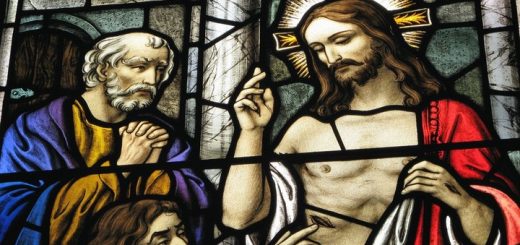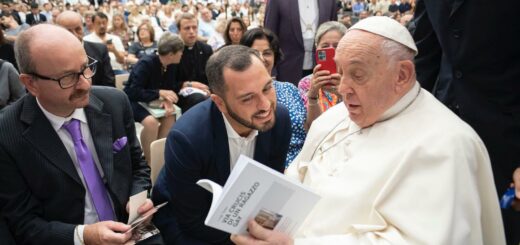Confessions of a prodigal queer son
Text by Jeromiah Taylor*, published on New Ways Ministry (United States) on March 30, 2025. Freely translated by the volunteers of the Gionata project.
As a Catholic and queer person, I often have to justify my belonging to the Church. Sometimes with other Catholics, sometimes with those who are outside. And every time they ask me: "But why are you still Catholic?", I admit that I struggle to find a simple answer. But the Gospel of this fourth Sunday of Lent, with the parable of the prodigal son, helps me get closer to an answer.
That parable - that of the son who goes away, wastes everything and then returns home - is one of those stories that crisis our human sense of justice. Like that passage of the Gospel of Matteo (20.1-16), where those who work only an hour receive the same wage as those who have struggled all day. It is a story that does not "work", which causes us.
But every time a step of the Gospel disturbs me, now I know: it is because it speaks of me.
I am often the one who arrives late, the one who takes absurd roads, the one that stumbles in a thousand deviations. If really "whoever goes slowly goes healthy and goes far", I'm afraid to be destined to lose me on the street. This is why I console myself that God is not "right" according to our criteria. As the Psalm says: "If you consider the faults, sir, who can resist?" I don't, for sure. I am one who has a desperate need for mercy. Of what is not calculated.
There were moments, in my spiritual life, in which I lived real blackouts. Long, dark periods, in which I metaphorically found myself in a porcile, hungry, far from everything I had hoped to be. And that's where I heard his father's voice again, who was looking for me.
The truth - and this is the good news - is that we cannot be "good enough". We will never make it with our strength, so there is no need to obsess to become "the best". What God seeks in us is not the performance, but the heart. Does not reward the seniority, nor constancy or results. There is only one prize: eternal life. And it is given for free, to those who come back. To those who let themselves be found.
As Pope Francis often repeats: «God never tire of forgiving us. It is we who get tired of asking for forgiveness. "
So yes, I can say too - and maybe you with me - that "I was lost, and I was found". But if I have to be honest, I can add: "I lost myself for the fourth time this week. And he still found me." After a while, when you come back many times with a low face and the heart in pieces, you really start to understand what San Paolo meant when he talked to become Ambassadors of Christ. Because being found transforms you. It makes you freer, more generous, more human.
In today's second reading, San Paolo says: "If one is in Christ, he is a new creature", and continues speaking of the Ministry of Reconciliation, entrusted to Christians.
It is from there that he took the name New Ways Ministry, in 1977. It was inspired by a pastoral letter written the year before by Monsignor Francis Mugavero, bishop of Brooklyn. In that letter, gay and lesbian Catholics was addressed directly, and all marginalized people, saying: «We are committed to helping you ... to find new roads (New Ways) For communicate the truth of Christ, because we believe that it will make you free. "
Here, the parable of the prodigal son and the message of San Paolo speak of this: of one via new. A road that leads to reconciliation, not only for LGBTQ+people, but for the whole Church. It is the path of immense grace, not very prudent, sometimes almost "reckless".
I remember a priest who, in confession, told me: "What matters is that you are here."
Perhaps this is the best answer we can give, we believers LGBTQ+, to those who ask us why we remain in the Church: "What matters is that we are here." And every time we lose ourselves, God is there that finds us. Always.
*Jeromiah Taylor is an author's author and collaborator of Bondings 2.0, blog of reflections and news promoted by New Ways Ministry. He writes about faith, social justice and inclusion in the Catholic Church.
Original text: On Being the Prodigal Son Again. And again. And again. And again. And ...






